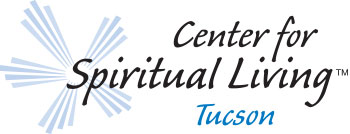Life Lessons
My personal aphorism goes like this: The road to perdition is based on incorrect assumptions.
My most recent experience of that personal truth happened one night around 10 o’clock as I was on my way home from a meeting in downtown Tucson.
I stopped at my local gas station to fill up and saw an older man – obviously homeless. He was dirty, long tangled hair and scraggly beard. He was push/pulling a roller chair holding the plastic bags of his belongings.
He started across the station drive and honestly my first thought, was oh no – I don’t really want to deal with this tonight. And, I looked away.
When I looked back he had fallen and with extreme difficulty, was trying to get back on his feet.
Before I could do anything – enter two young men: baseball caps on backwards, dressed for shenanigans with the 12-pack on the pick-up seat, etc. etc. They went over, gently picked him up, talking quietly to ease him. They asked if they could take his stuff off the seat of the roller-chair so he could sit. They made sure he knew where his stuff was at all times. Then while one of them moved him toward the office, the other went in to have the manager call for assistance. Then the three of them got him settled and the manager stayed with him while waiting for help.
The guys, after saying good-bye and reassuring him other help was coming, got in their well-traveled pick-up and went on their way.
I just sat there and watched the great goodness happen. A great goodness that I was not a part of.
I had assumed the homeless man was going to ask me for something. I also assumed the two guys parked over to the side with their 12-pack were other than what they truly were: actual good Samaritans.
My lessons from that night were downright painful to accept, but amazingly good for my soul.
…God makes no mistakes. All mistakes rest in the experience of man. “There is no sin, but a mistake, and no punishment but a consequence.” We must declare that no mistakes have been made, none are being made, and none are going to be made. If mistakes have been made we must neutralize their effect by the direct declaration that they no longer have power over us.
~ Ernest Holmes, The Science of Mind 612.6
It certainly felt like I made mistake. Yet, the homeless man was in better physical hands with the two guys then any attempt I might have made to help him.
BUT, did I miss a chance to live/love the whole experience of knowing that we are all one in Spirit? Oh, you bet.
Am I working deeper and trying harder to master that lesson? That’s an even bigger you bet.
Travel well on your path and mind the lessons as they appear.
— Mariann Moery






